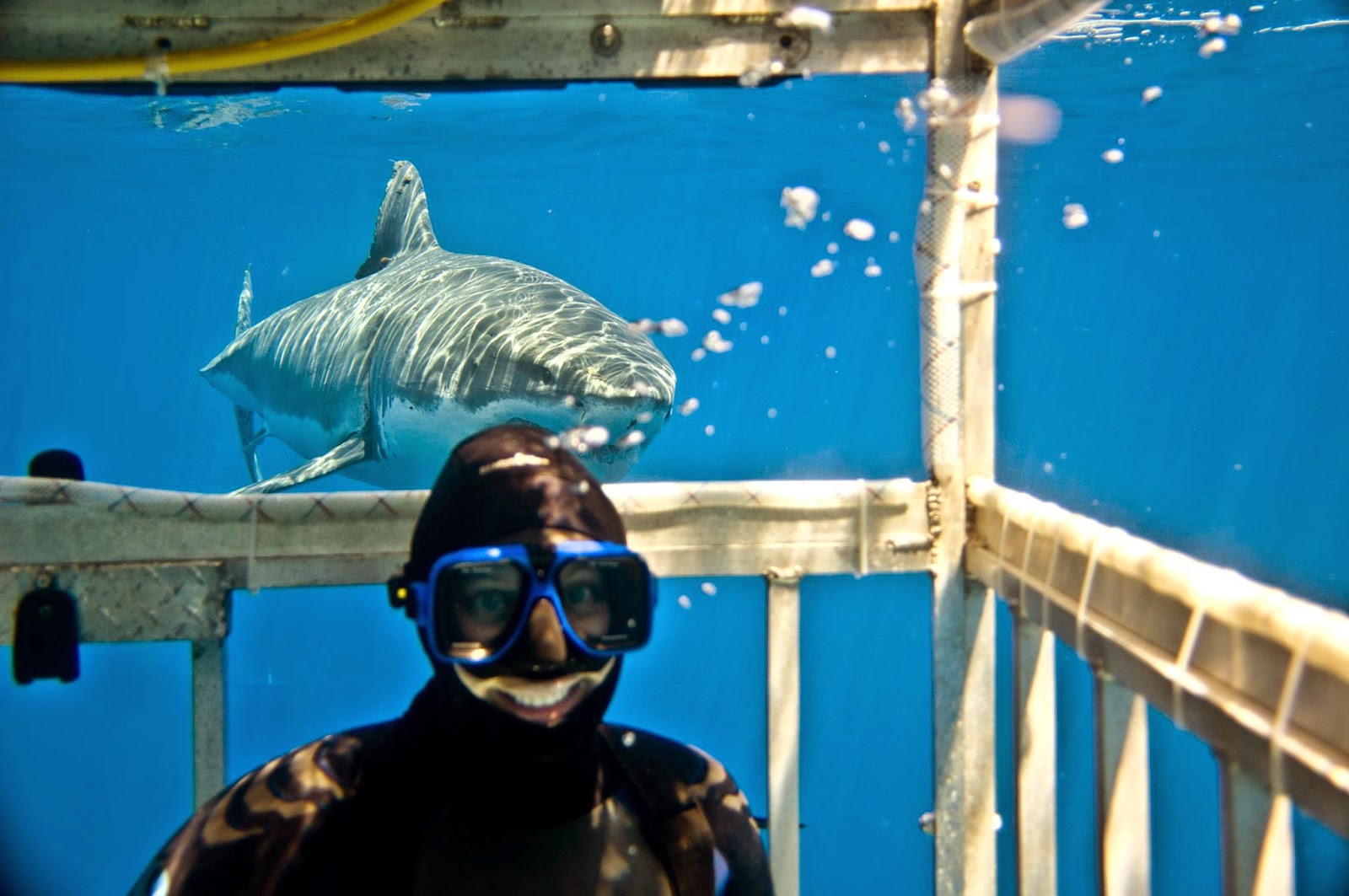“Shark Attacks Are So Unlikely, But So Fascinating” is the title of an article in Popular Science.
Wow, a non sensationalistic headline dealing with shark attacks. Good job!
George Burgess, a shark researcher and curator of the International Shark Attack File (ISAF) writes a good article on how and why the media covers shark attacks. I don’t always agree with him, but think this article gives some good insights into the psychology of shark attacks and how they get covered.
“Sharks are incredibly unlikely to bite you. They’re even less likely to kill you. However, we remain fascinated with their ability–and occasional proclivity–to do just that. With so many things more likely to harm us, why do we pay such rapt attention when sharks make headlines?
People need to understand more fully that when we enter the sea, it’s a wilderness experience. We’re eco-tourists and are not owed the right to be 100% safe. That’s what fascinates us about sharks: There’s an innate concern in our psyches about not wanting to get eaten. Almost every other animal on earth has to worry about getting eaten night and day. As humans, we rarely have that concern. People hold sharks in awe as one of the rare species that reminds us we’re still potentially part of a food chain.
You’re much more likely to be injured or die during your evening run than in a shark attack, but don’t expect to turn on the Discovery Channel and see Sneaker Week. For better or worse, we’re hard-wired to pay attention to creatures that can eat us–even if they rarely do.”
I think he hit the nail on the head. In addition to what he mentions, I also believe that for humans to go into the ocean is innately uncomfortable. We are not in our natural environment. There are so many perceived dangers, real or not. We are fascinated by what we may encounter, but also weary of the unknown.
Most people are probably overestimating the chances of getting killed by a shark and who can blame them, with the way we are bombarded with sensationalistic coverage of anything shark related. In 2014, there were zero fatal shark attacks in the entire US!
“There wasn’t a single fatality in the entire country last year and only three worldwide.” source
We always talk about what kills more people than sharks, but have you ever thought about what kills fewer? What kills humans, but at a rate of fewer than 10-12, or as last year, fewer than 3 annually in the entire world? There may be something, but I haven’t come up with an answer yet.
A lot of people will argue, that there are more fatalities on land, because the number of people who go into the ocean is far lower than the number of people who stay on land and even the people who are going into the water, spend much more time on land as well.
OK, so let’s look at the risks of going into the ocean and what you have to be aware of.
According to the CDC “From 2005-2009, there were an average of 3,533 fatal unintentional drownings (non-boating related) annually in the United States — about ten deaths per day. An additional 347 people died each year from drowning in boating-related incidents.2”
Gerry Burgess puts this in perspective. To put that into perspective, more people die from drowning every day in this country than were killed by sharks in ten years.
I hope the government of Western Australia is paying attention to this. Their budget for shark mitigation is $22 million. source If they would spend that much money on additional lifeguards and life saving equipment instead, they could probably save a lot more lives than with that ill advised shark cull program.
Burgess goes on to explain why the number of annual fatalities has gone up slightly, but the actual rate has gone down.
When you think of how much time we spend in the water, it’s amazing how innocuous shark and human interaction is. When the ISAF began in the 1950s, scientists were concerned primarily with shark attacks after ships and aircraft went down at sea.
A lot has changed since then. There are a lot more of us on earth today than there were back then and there will be even more tomorrow. Aquatic recreation has never been more popular. More people are kayaking, surfing, diving and paddleboarding.
More time in the water means more time to interface with sharks.
It’s partly a generational change. When my parents took a young me to the beach, my mother would lie on the sand and work on her suntan, never going in the water. My dad might have gone in once a day to cool off. Nowadays, if I’m at the beach, I might be boogie boarding or skin diving. Most of us are spending a lot more hours in the water than did our parents and our activities are inadvertently provocative. That creates ample opportunities for sharks and humans to get together.
This article in Popular Science should be mandatory reading for any journalist covering shark related stories. But of course, like Burgess points out, who would watch “Sneaker week”. Unfortunately the news is a business and headlines are designed to catch our attention. Like it or not, we are all guilty of it. Like we wrote about here. What headline are you going to pay attention to. “Shark trying to bite through steel cage!” or “Shark bumps into cage”?
Enjoy your time in the ocean this summer and remember to watch out for rip currents and swim near a lifeguard. If you happen to see a shark, consider yourself lucky.
Cheers,
Martin Graf
CEO Shark Diver
About Shark Diver. As a global leader in commercial shark diving and conservation initiatives Shark Diver has spent the past decade engaged for sharks around the world. Our blog highlights all aspects of both of these dynamic and shifting worlds. You can reach us directly at staff@sharkdiver.com.





